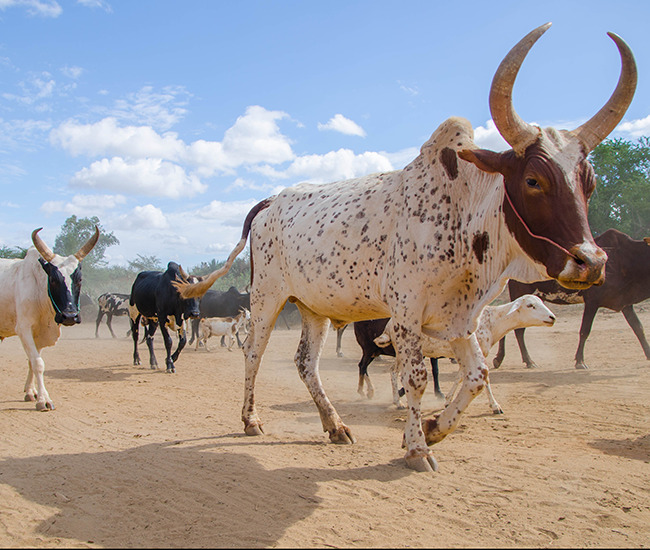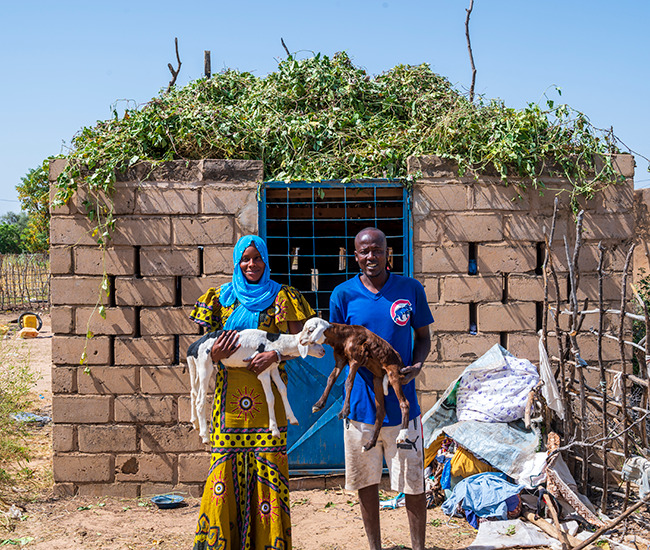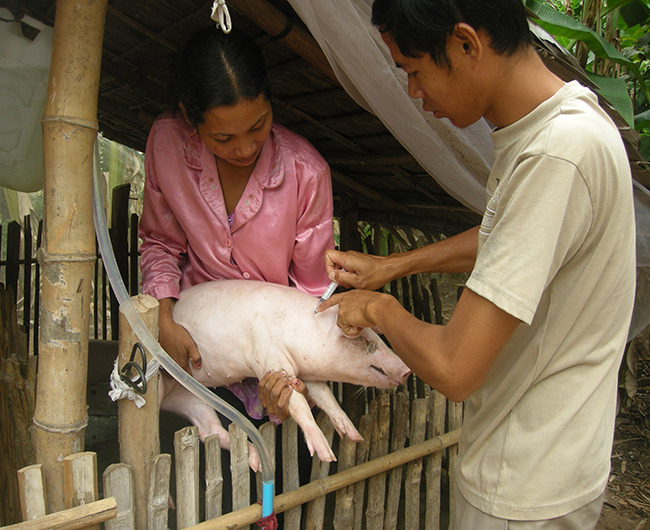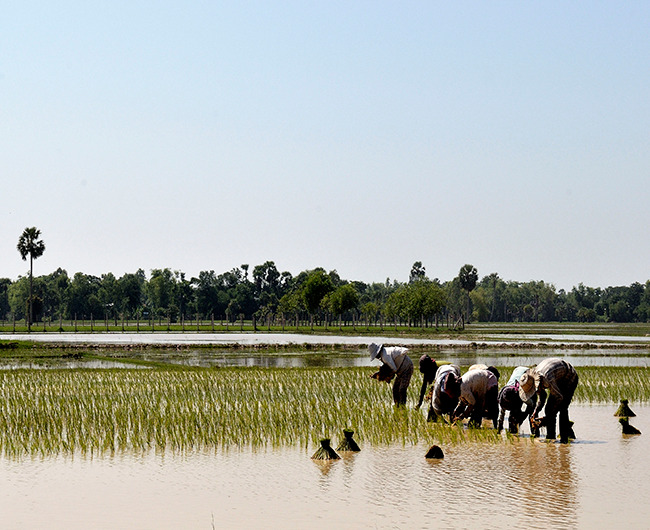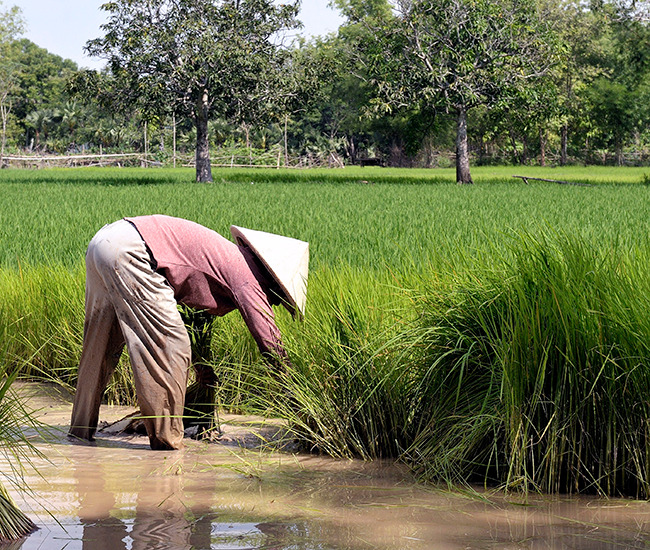AVSF has been working in Cambodia for over 20 years
In Cambodia, a country in Southeast Asia, the Mekong River cuts through the great plains, and the Tonle Sap is surrounded by plateaus and cultivated hills. Despite the advantages of Cambodia’s rice cultivation and growing tourism industry (thanks in large part to the Angkor site), the country is still one of the least developed in the world. More than two decades of civil war, especially under the Khmer Rouge regime, have ravaged the country’s infrastructure, decimated the population, and left behind painful memories. Agriculture is the biggest sector of employment, but agricultural production is still heavily affected by climate conditions and variability (flooding and drought). Smallholder livestock farming is hampered by infectious disease and is faced with strong competition from neighboring countries. AVSF made the decision, more than 20 years ago, to support those smallholder families most affected by exclusion and food insecurity via concrete activities in livestock farming, animal health, crop storage, access to water, and income-generating activities.
Pioneering and officially recognized work in training veterinarian assistants
AVSF began working in Cambodia in 1991, providing technical support in livestock farming to the Royal University of Agriculture in Chamkar Dong. Since then, faced with a lack of basic animal health services at the village level, AVSF trained more than 500 veterinarian assistants in Cambodia: village animal health agents chosen by their community and trained to offer local veterinary services to smallholder families. These agents are now officially recognized by the government. Associations of veterinarian assistants were established to help ensure their continuation. AVSF also offers services and advising for smallholder families in improved animal production.
Since 1997, AVSF has diversified its work by offering services and advising on activities relevant to smallholder families, such as income-generating activities: reparation of small irrigation systems, creation of village rice banks, market gardening production, creation of small shops, small-scale processing, and the spreading of agro-ecological techniques. Many rice banks were created and are now managed independently by smallholder organizations. Very small associations are therefore little by little taking charge of services that are of use to their village, teaming up with one another, and could eventually become true smallholder organizations in strategic services and sectors for both rural and urban areas. That is the challenge that we are facing in Cambodia.
